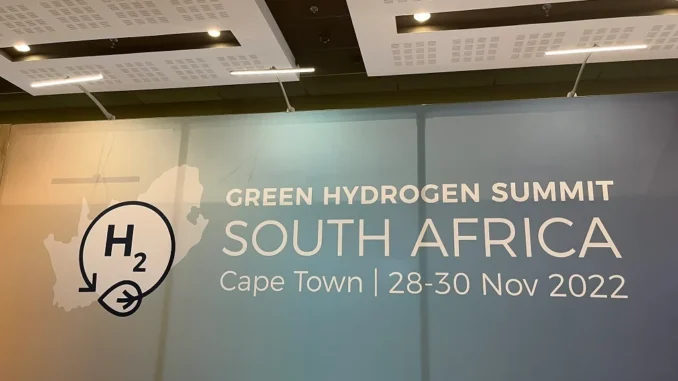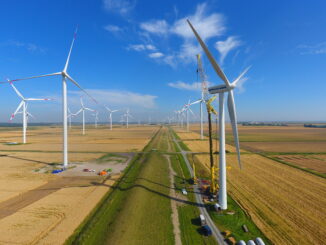
South Africa’s initial green hydrogen projects stand to gain support from €23 million (R410 million) in grant funding from the German Development bank KfW.
Green hydrogen is created when water is split into oxygen and hydrogen (natural gas), using wind or solar energy. Green hydrogen can replace fossil fuels.
On Monday, the Industrial Development Corporation (IDC) signed a Memorandum of Understanding (MoU) with KfW ahead of South Africa’s inaugural green hydrogen summit.
IDC chief operations officer Joanne Bate said that a request for proposal had been issued for potential projects, which had since been narrowed down to 11. The successful projects, once identified, will then have funding flow to them. The grant funding is needed to catalyse “very early stage” green hydrogen investments, she explained.
“We are very grateful for the grants because these projects need catalysing, equity-type funding to allow them to get off the ground,” said Bate.
KfW’s head of division for infrastructure in southern Africa, Babette Stein von Kamienski, said that the funding facility should be set up by the end of the year or early next year before contracts can be signed. It is envisioned that the €23 million should be available for the next five or six years.
The grant funding is part of Germany’s commitment to the Just Energy Transition Partnership with South Africa and other wealthy nations – the UK, US, France and the EU.
Just a few weeks ago, when South Africa unveiled its Just Energy Transition Investment Plan, President Cyril Ramaphosa said that he had told the international partners that the proportion of grant funding for the transition needed to be “upgraded” because it was not enough. He echoed these views at the UN climate summit COP27, where he also called for multilateral financial institutions and development banks to reform their lending practices to be less risk-averse.
Last week, ahead of Ramaphosa’s state visit, the UK government announced it would be supporting South Africa’s green hydrogen sector with grant-funded technical assistance.
Minister in the Presidency Mondli Gungubele said green hydrogen could play a bigger role in South Africa’s energy mix.
“This initiative is a historic opportunity for South Africa to be a key role player in the world… If we do well and this takes off if green hydrogen is the energy source of future, that makes us the Saudi Arabia of the future. We can’t miss the opportunity,” Gungubele added.
READ | UK to back SA’s green hydrogen plans with grant funding
The week ahead will see South Africa marketing itself as a large-scale, low-cost green hydrogen production hub, said Minister of Public Works and Infrastructure Patricia De Lille.
Dr Kgosientsho Ramokgopa, head of Infrastructure South Africa, said that South Africa has competitive advantages in the green hydrogen industry. This is mainly because its renewable energy resources such as solar and its mineral endowments – namely platinum group metals – are both used for the production of green hydrogen. There is a pipeline of green hydrogen projects in the country worth R300 billion, he said.
Cape provinces collaborate
A separate agreement was signed between the Western Cape and Northern Cape governments to establish a green hydrogen corridor between the regions.
Premier of the Northern Cape Zamani Saul said the green hydrogen economy presented an opportunity to create jobs and fight poverty. The province is the prime destination for renewables – accounting for 64% of all South Africa’s renewable energy investments, or R128 billion.
“I believe working together, we can walk a much longer distance and a bit faster. We believe the symbiotic relationship will benefit both provinces,” said Zamani.
Western Cape Premier Alan Winde noted that the Northern Cape province was the first to have a green hydrogen strategy. Most recently, the Western Cape cabinet adopted a green hydrogen strategy for the province too.
“This is a massive opportunity for us, not just for our respective provinces but for South Africa and sub-Saharan Africa,” Winde said, adding that there is potential to expand the collaboration with Namibia, which the Northern Cape is already engaging on the matter.






